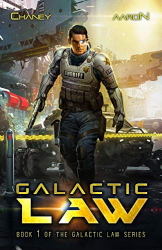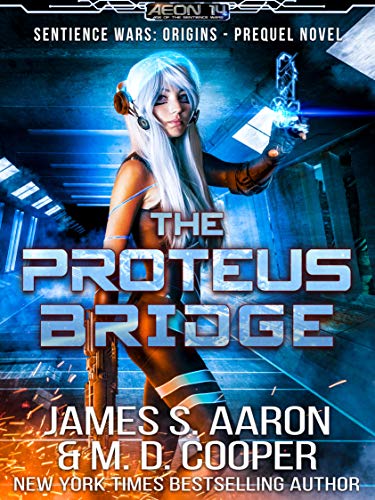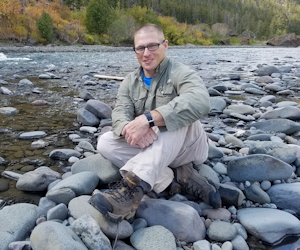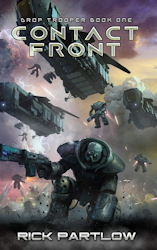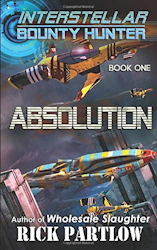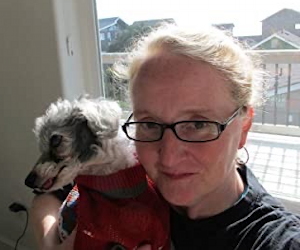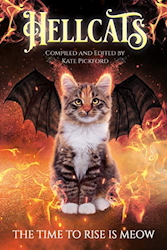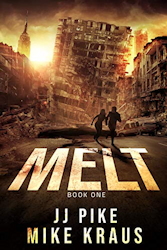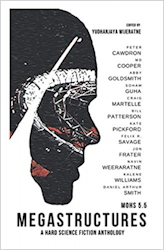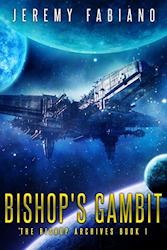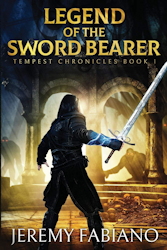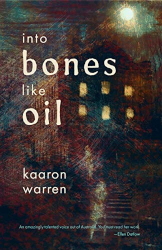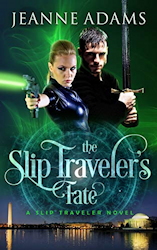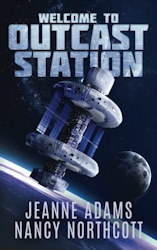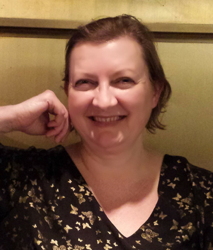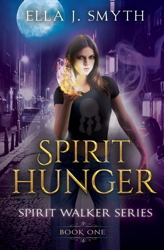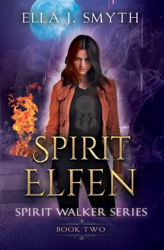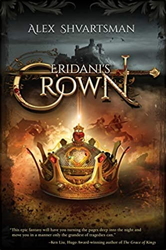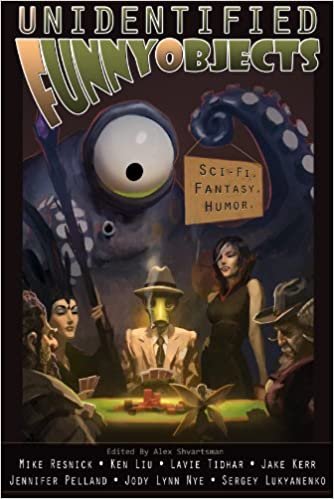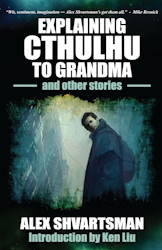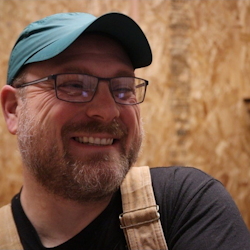
The weather has turned damp and cold, and I am trying to do all the things before the end of the year. Amazingly, I’m actually having a modicum of success, particularly in terms of finally convincing Amazon to accept my formatting of various trade paperback editions of my work that have previously only been available in ebook format. And this is a good thing, because as convenient as being able to read on one’s smartphone may be, there is no shortage of folks who like holding physical books, or having them upon a shelf. Even better still, some of these books may actually be available in time for holiday gift giving. I’m just sayin’.
Unfortunately, all this work on book design has left no time for proper segues, so you’ll have to settle for having me simply introduce you to this week’s EATING AUTHORS guest, James S. Aaron, without any further delay.
James comes to science fiction via a background in the army (where he served as a medic, platoon leader, and company commander), as well as nearly a decade in law enforcement. He’s the author of fifteen books in the genre of Mil-SF Space Opera (including work co-written with M.D. Cooper for the Aeon 14 Sentience Wars series and JN Chaney’s Galactic Law series) as well as numerous short stories for anthologies.
All of this is secondary to his pursuit of the perfect pizza dough. It’s not clear if this search is what led him to live in Oregon, but that’s surely as good place as any — and better than most — for such a commendable quest.

LMS: Welcome, James. Tell me about your most memorable meal. I understand it involves a ‘love connection’.
JSA: According to OKCupid, we were only a 76% match. For that period in online dating history, 76% was a low rating. Some people wouldn’t even bother with a rating so low.
It turned out that Holly and I lived only a block apart and we had a lot of friends in common, so we figured we’d buck the algorithm and meet anyway. Our texts had been great, but we also knew you needed to meet in person to get the sniff test out of the way. We were both jaded by the online thing.
“I’m going to bring you an avocado poundcake,†she said. “And whiskey.â€
“You put avocado in the cake?â€
I’d been tricked by subversive ingredients like jalepeño in chocolate cake before. Holly assured me this was nothing like that.
While I was deployed as part of Southern Watch, a Kuwaiti officer held up an avocado in the dining hall and asked us what it tasted like. My unit was from El Paso and well-versed in the wonders of avocado, but all we could think to say was, “It tastes green.â€
“It’s a vegetarian secret,†Holly said. “You’ll see.â€
I was stuck at my retail job until midnight, and Holly walked over from her place after I got free. We met for the first time down on the big wrap-around porch of the house where I was living. It was spring but extra cold that night.
When we saw each other, I remember the usual feelings associated with online dating: relief that her photos had captured her great smile, and the reassurance she was as outgoing and sassy as her texts.
Then she handed me the cake wrapped in tinfoil.
I was surprised. “It’s still warm.â€
She smiled. “I was anxious, so baking gave me something to do. And then I could bring you something nice.â€
Holly’s match rating went to 99%. No one had ever done something like this on a first date before. I needed to step up my game.
I must have passed the sniff test, at least for the time being, because Holly came upstairs to my apartment and we ate slices of the warm, spiced pound cake with melting butter, alongside sips of the bourbon. That was the best meal of this part of my life.
Since then, if someone asks me what avocado tastes like, I say love.

Thanks, James. I confess, I knew this tale was going to end well when you went ‘old school’ and referenced tinfoil. Happy ending aside, I’m still wondering about the secret behind the use of avocado…
Next Monday: Another author and another meal!

NB: links to authors and books here are included as part of an Amazon Affiliate account. If you follow any of them and ultimately make a purchase Amazon rewards me with a few pennies of every dollar.
Want to never miss an installment of EATING AUTHORS?
Click this link and sign up for a weekly email to bring you here as soon as they post.
#SFWApro
